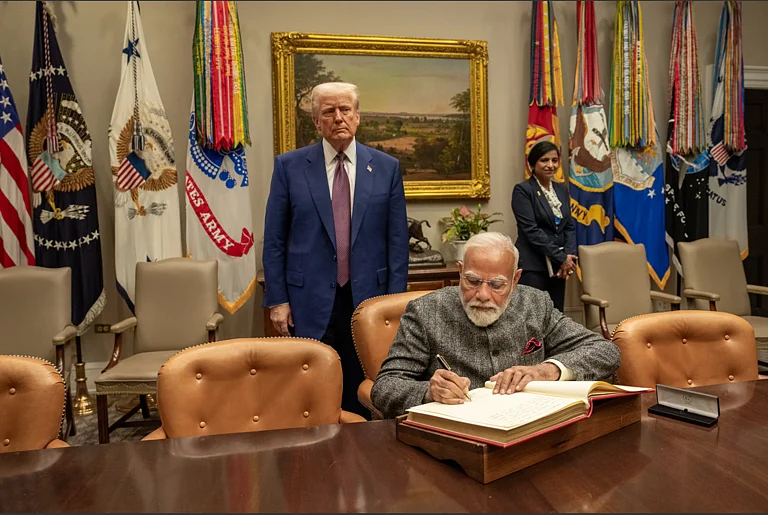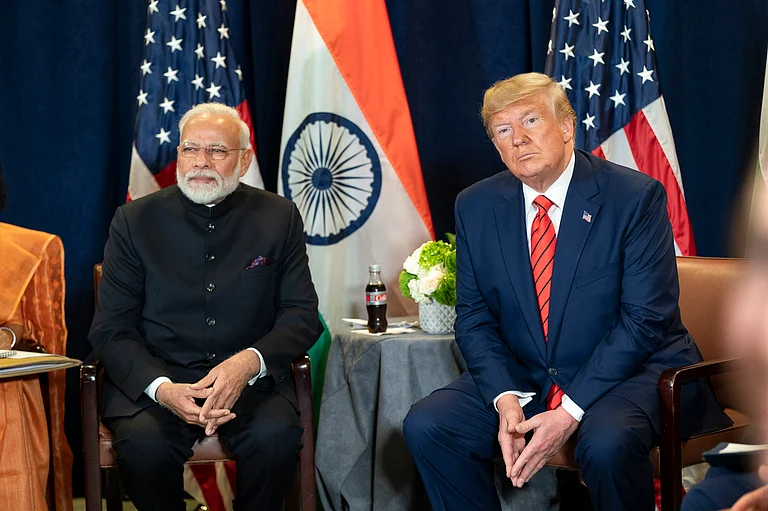The Nifty 50 recorded its strongest weekly gain in over seven months, surging 4.18 per cent over the past week.
The broader market showed even greater strength, with the Nifty Midcap 100 jumping 7.21 per cent and the Nifty Smallcap 100 rallying an impressive 9 per cent.
Trading volumes on the National Stock Exchange (NSE) cash market jumped 10 per cent compared to the previous session, marking the highest turnover since March 27, 2025.
Despite benchmark indices ending flat, the surge in volumes points to strong investor participation, said Nandish Shah, senior derivative and technical research analyst at HDFC Securities.
The rally over the last week also witnessed broad-based participation from all sectors.
Ajit Mishra – senior vice president, research, Religare Broking, said: “Realty, metal, and energy stocks emerged as the top performers. Moreover, thematic plays such as defence, railways, and select PSUs across sectors attracted notable investor interest.”
India-Pakistan Ceasefire Led To This Sharp Surge
Vinod Nair, head of research at Geojit Financial Services, said that Indian equity markets started the week on a strong note, primarily lifted by the announcement of a ceasefire between India and Pakistan.
"This pivotal development swiftly dispelled a cloud of geopolitical uncertainty that had weighed on investor sentiment, triggering a wave of optimism across the markets," he said.
Tensions between India and Pakistan erupted after Pakistan-backed terrorists killed 26 tourists in Pahalgam on April 22, 2025. In retaliation, India carried out precision military strikes on nine terrorist camps across Pakistan and Pakistan-occupied Kashmir (PoK) in the intervening night of May 6 and May 7.
This was followed by four days of intense cross-border hostilities, including shelling, gunfire, and drone attacks. The escalation eventually led both nuclear-armed nations to agree to a ceasefire.
Easing Trade, Geopolitical Tensions
Nair added that the market rally was also driven by hopes of easing global geopolitical tensions and improving trade conditions, which could continue to support equity markets worldwide.
Over the last week, the United States and China agreed to lower tariffs on each other for an initial 90-day period. India and the UK also signed a Free Trade Agreement (FTA), putting an end to three long years of negotiations. On similar lines, the US and the UK also signed trade deals, further de-escalating global trade tensions.
FII, DII Buying
Strong and consistent buying by both foreign institutional investors (FIIs) and domestic institutional investors (DIIs) further fuelled the positive momentum, Nair said.
Data from National Securities Depository (NSDL) showed that FIIs bought a net Rs 4,439.40 crore during the week. This month so far, FIIs have injected Rs 18,620 crore so far.
Softer Inflation
Misra said that softer retail and wholesale inflation data had raised hopes of an interest rate cut by the Reserve Bank of India (RBI) in its upcoming policy meeting.
India’s headline inflation eased sharply in April 2025, dropping to 3.16 per cent, its lowest level since July 2019. The decline was largely driven by a significant fall in food prices, particularly in vegetables, pulses, and fruits
What Should Investors Do
Mishra said investors could consider a "buy on dips" strategy, especially given the broad-based rally with different sectors showing strength in rotation.
“Stock selection based on a favorable risk-reward profile remains critical,” he said.
He added that thematic sectors, such as defence and railways, which have delivered strong performances in recent weeks, may continue to present attractive opportunities.
Nevertheless, he also advised traders to exercise caution.
“Maintain a disciplined approach, including clear exit strategies while pursuing momentum trades, and avoid taking contrarian positions without strong supporting signals,” he added.













